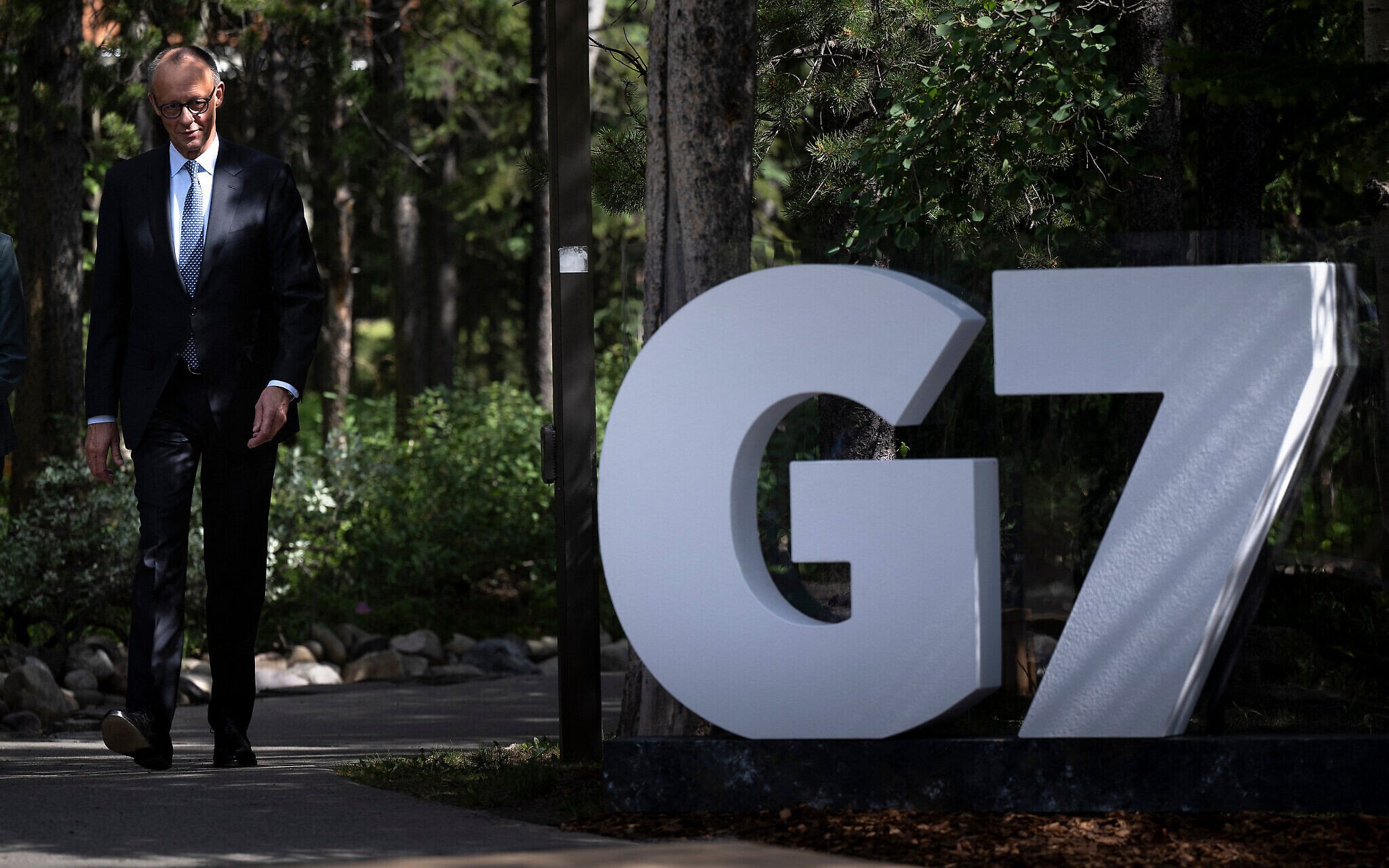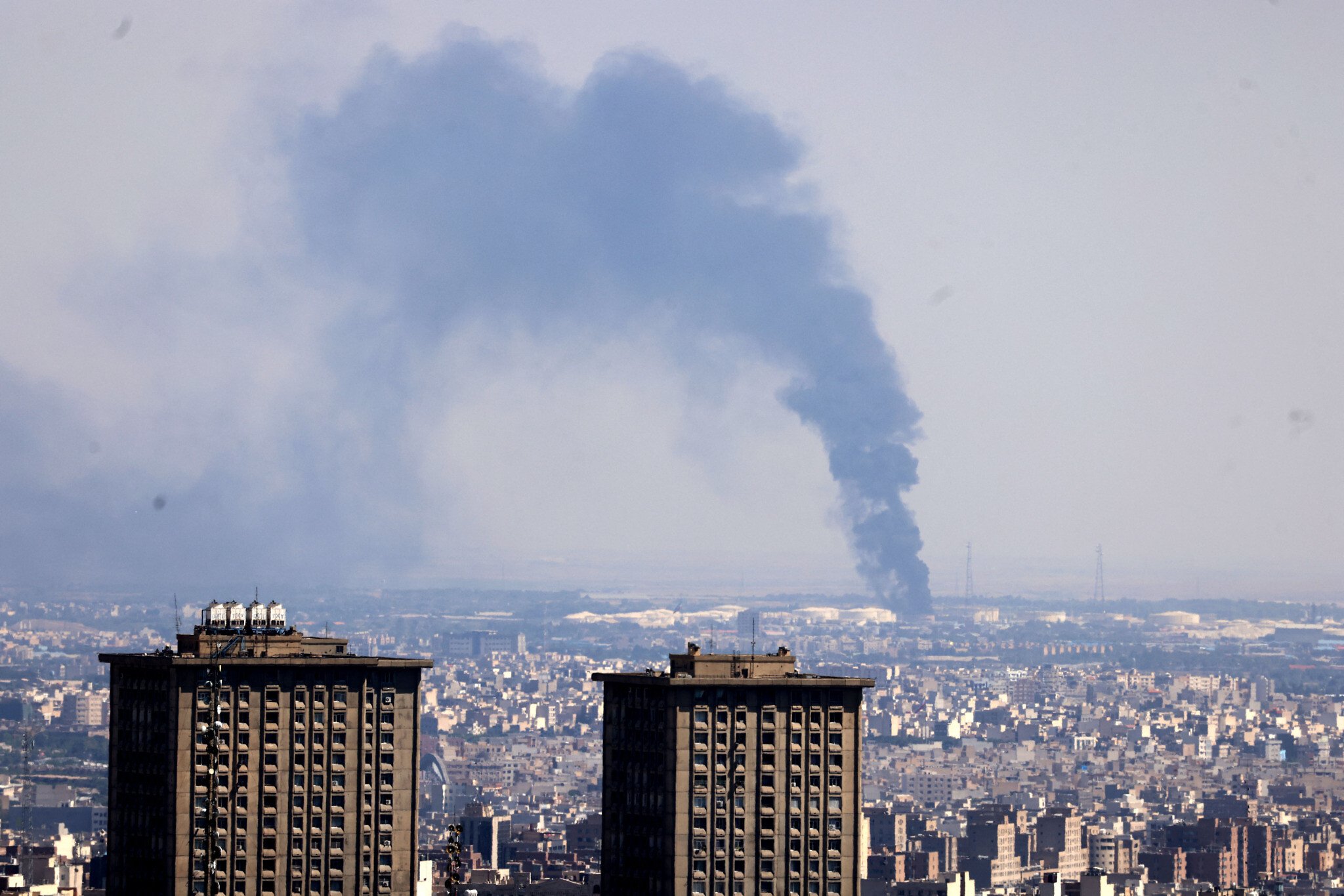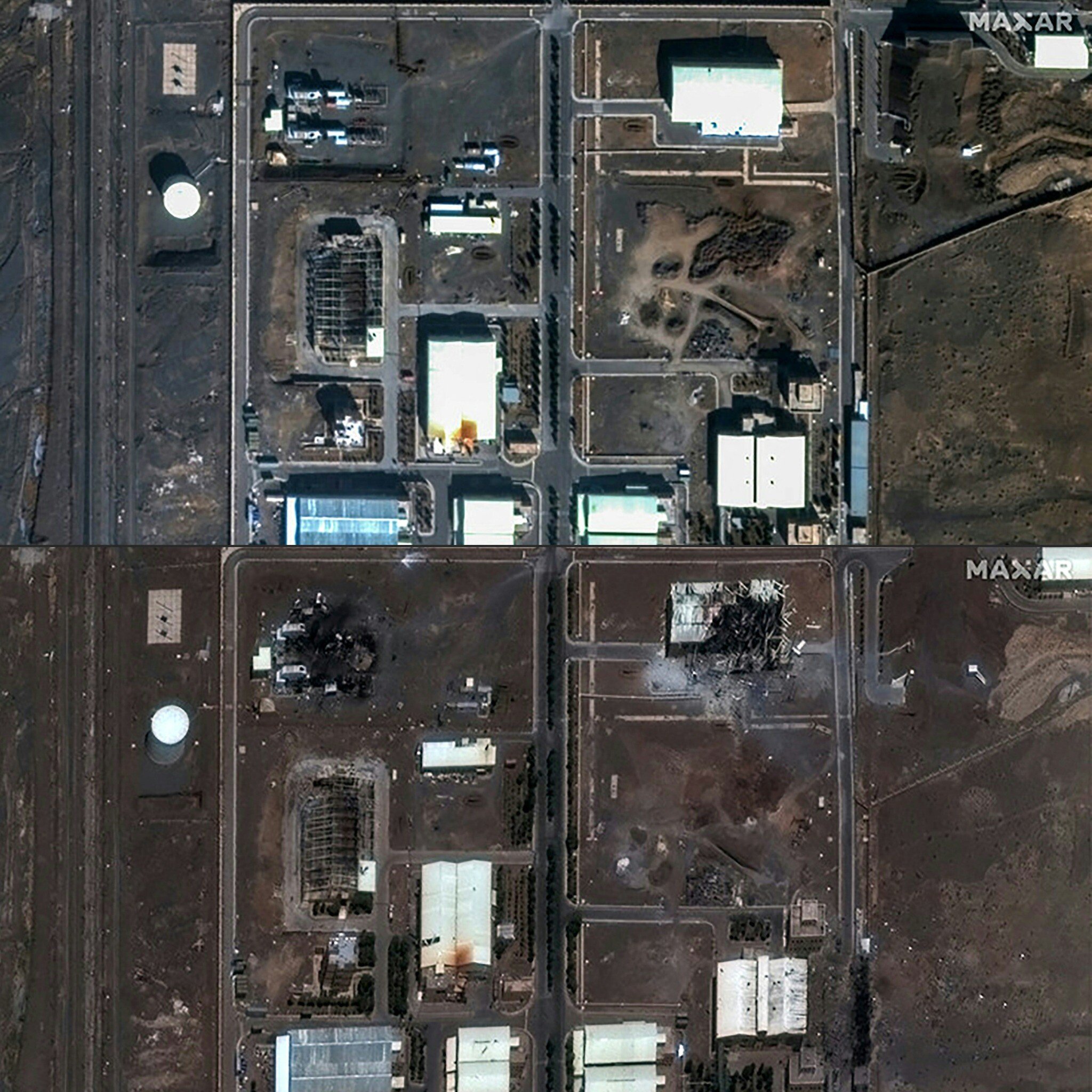



German Chancellor Friedrich Merz said on Tuesday that the complete destruction of Iran’s nuclear weapons program could be on the agenda if Tehran does not back down and return to the negotiating table.
“The Israeli army is obviously unable to accomplish that. It lacks the necessary weapons. But the Americans have them,” said Merz in an interview with broadcaster ZDF on the sidelines of the Group of Seven (G7) summit in Canada.
Israel may need the 30,000-pound GBU-57 Massive Ordnance Penetrator, which uses its weight and sheer kinetic force to reach deeply buried targets and then explode, to destroy Iran’s Fordo uranium enrichment facility, which is deep underground. But Israel does not have the munition or the bomber needed to deliver it — the penetrator is currently delivered by the United States’ B-2 stealth bomber.
“This is the dirty work Israel is doing for all of us. We are also victims of this regime. This mullah regime has brought death and destruction to the world,” Merz said of the ongoing strikes.
Speaking to broadcaster Welt, Merz said the leadership in Tehran has been weakened by Israel’s attacks in the past few days.
“This regime is very weakened and will probably not return to its former strength, making the future of the country uncertain. We will have to wait and see,” he said.
Merz added that the Europeans’ offer of diplomatic assistance, should talks resume, still stands as it did before the attacks.
“If a new situation were to arise, Germany, France and the United Kingdom would again be prepared to provide diplomatic assistance, as they were until last Thursday,” he said.
Asked whether he thought the United States might get involved in the military campaign against Iran, Merz said he believed there was “no decision yet from the American government.”
“It now depends very much on how far the mullah regime is prepared to return to the negotiating table,” he said. “If not, there could be further developments of this kind.”
While the leaders of Britain, France and Germany have been sharply critical of Israel for its conduct of the war with the Hamas terror group in the Gaza Strip, they have expressed varying degrees of support for Israel since it launched its strikes on Iran’s nuclear and weapons systems on Friday.
Foreign policy experts attributed the comity on Iran to Europe’s alarm at the recent report by United Nations experts that Tehran is closer than ever to a nuclear weapons breakout. Another factor is Iran’s alliance with Russia in its war against Ukraine.
Scheduled nuclear talks on Sunday between US Special Envoy Steve Witkoff and Iran’s Foreign Minister Abbas Araghchi were canceled when the enmity between Israel and Iran escalated into unprecedented open conflict in the early hours of Friday morning, when Israel launched a major offensive against Iran and its nuclear program, hitting nuclear sites, missile bases and top military officials.
Israel says its sweeping assault is necessary to prevent its longtime adversary from getting any closer to building an atomic weapon. At the beginning of the campaign last Friday, it said the situation had become an immediate existential threat to the Jewish state.
So far, 24 people have been killed and more than 500 wounded in Iran’s ballistic missile attacks, launched in response to the surprise campaign against the Islamic Republic.
Israeli strikes on Iran have killed at least 224 people, according to Iranian officials.


